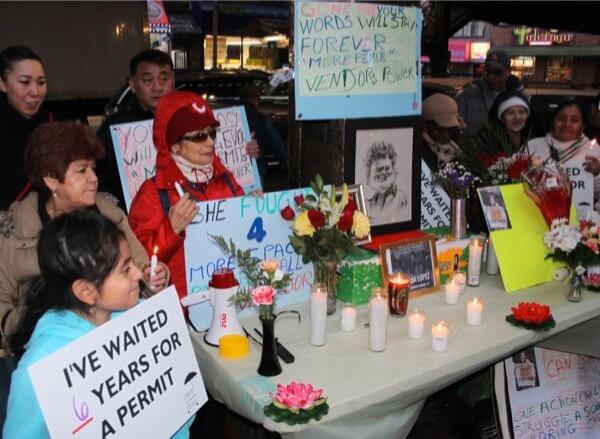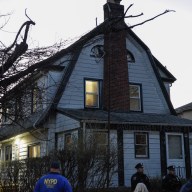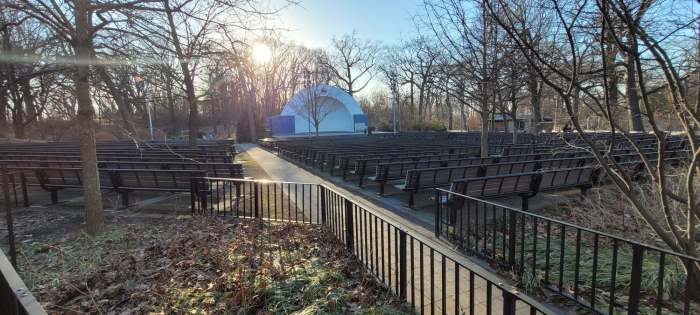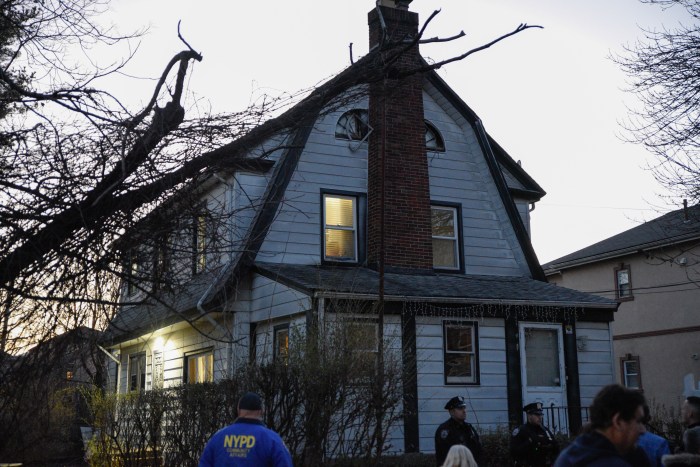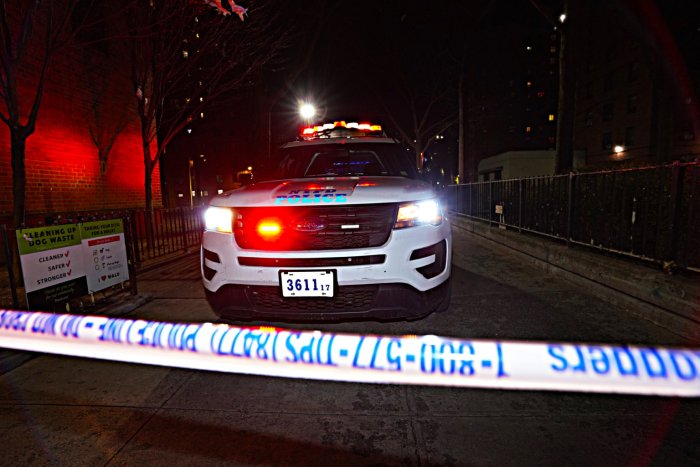By Bill Parry
Dozens of immigrant vendors and advocates gathered for a candlelight vigil in Corona Tuesday to remember one of their leaders on the one-year anniversary of her death. Claudia Lopez was an iconic figure in the neighborhood, a churro vendor by the entrance to the Junction Boulevard No. 7 subway station for more than 22 years, before succumbing to cancer at the age of 45.
“She loved to work a lot so she was here every day and I think she had a positive impact on this community,” said Cesar Boc, an organizer with the Street Vendor Project. Lopez was a member of Make the Road New York, the Jackson Heights-based non-profit that aims to build up working class Latino communities as well as the Street Vendor Project, which represents more than 2,200 vendors in New York City.
“She was a beloved member of the community always involved in rallies and meetings and events,” Boc said. “She also invited other people in the community to help out with the cause as well.”
Lopez immigrated to the United States in the late 1980s in search of an opportunity to financially support her family as they struggled to make ends meet in Mexico. She began selling churro from a vending cart in front of 96-07 Roosevelt Ave., the very spot where the vendors, friends and advocates gathered to remember her and carry on her campaign for economic and social justice.
They also rallied for the cause Lopez most fiecely advocated for, lifting the arbitrary cap on New York City street vendor permits.
Due to the limits on New York City street vendor permits, she was forced to work as an unpermitted vendor. Lopez became a staunch advocate for street vendor reform, working with the #LiftTheCaps campaign in its efforts to expand access to economic opportunities for more than 20,000 street vendors who are mostly immigrants, people of color and U.S. military veterans.
“As a community organizer with the Street Vendor Project she helped lead the campaign to lift the caps so the city will give out more permits,” Boc said. That campaign was launched in 2014 to increase the number of available permits for street food vendors in New York City. Due to the cap placed on permits in 1983, there are currently only 3,100 food permits available, an artificially low number that has created an underground black market in vending permits and a waiting list of up to 20 years.
Although the license fee is $200 for two years, permits that are leased on the black market can cost upwards of $20,000 for the same two-year period. Advocates say it is unfair for a person to pay for a license and then lease it to a poor person at an extraordinary mark-up.
“It is a system that is completely broken and not serving anyone well,” 82nd Street Partnership Executive Director Leslie Ramos said. “It’s not good for the vendors who are being exploited by the black market, it’s not good for the small businesses because the street vendors are competing directly with them, and it isn’t working for the community because the streets get so congested.”
Legislation to gradually increase the number of permits, Intro. 1303, was introduced in the City Council in October. At a hearing on the bill that month, the de Blasio administration claimed it would complete its vendor study by the end of 2016.
Reach reporter Bill Parry by e-mail at bparr

